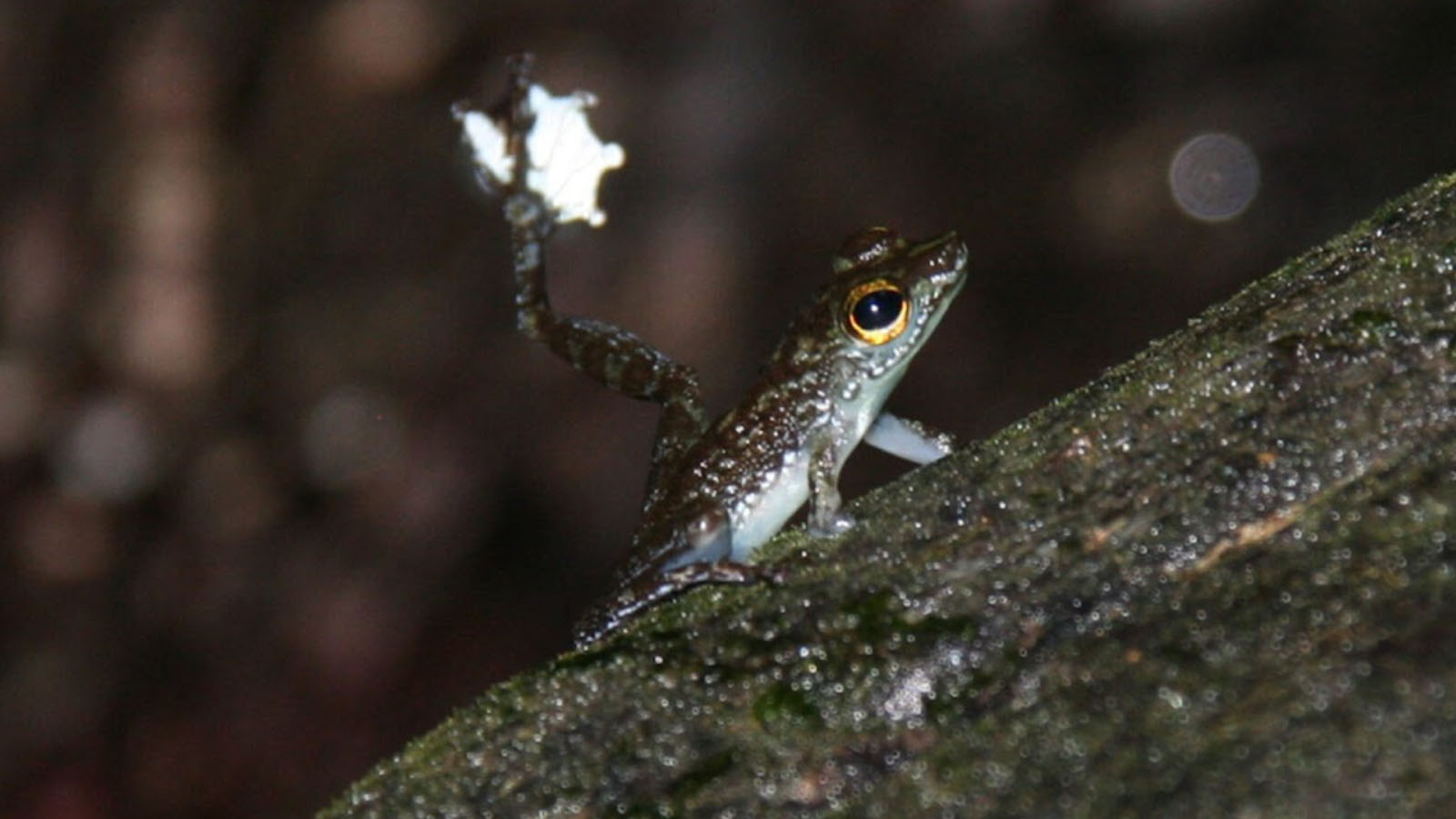

Mangiamele is particularly interested in "foot-flagging," a unique communication behavior in Bornean frogs where males use their brightly colored webbed feet to attract mates and deter rivals. By studying the genomes of foot-flagging frogs and comparing them to non-foot-flagging species, her team investigates how hormones influence behavioral evolution. Last year, her team used Boston University's Shared Computer Cluster for their transcriptomic analysis of Bornean frog tadpoles at different developmental stages, examining gene expression to understand neural circuit changes related to foot-flagging. A recent paper on the first foot-flagging frog genome appeared in G3 Genes|Genomes|Genetics.